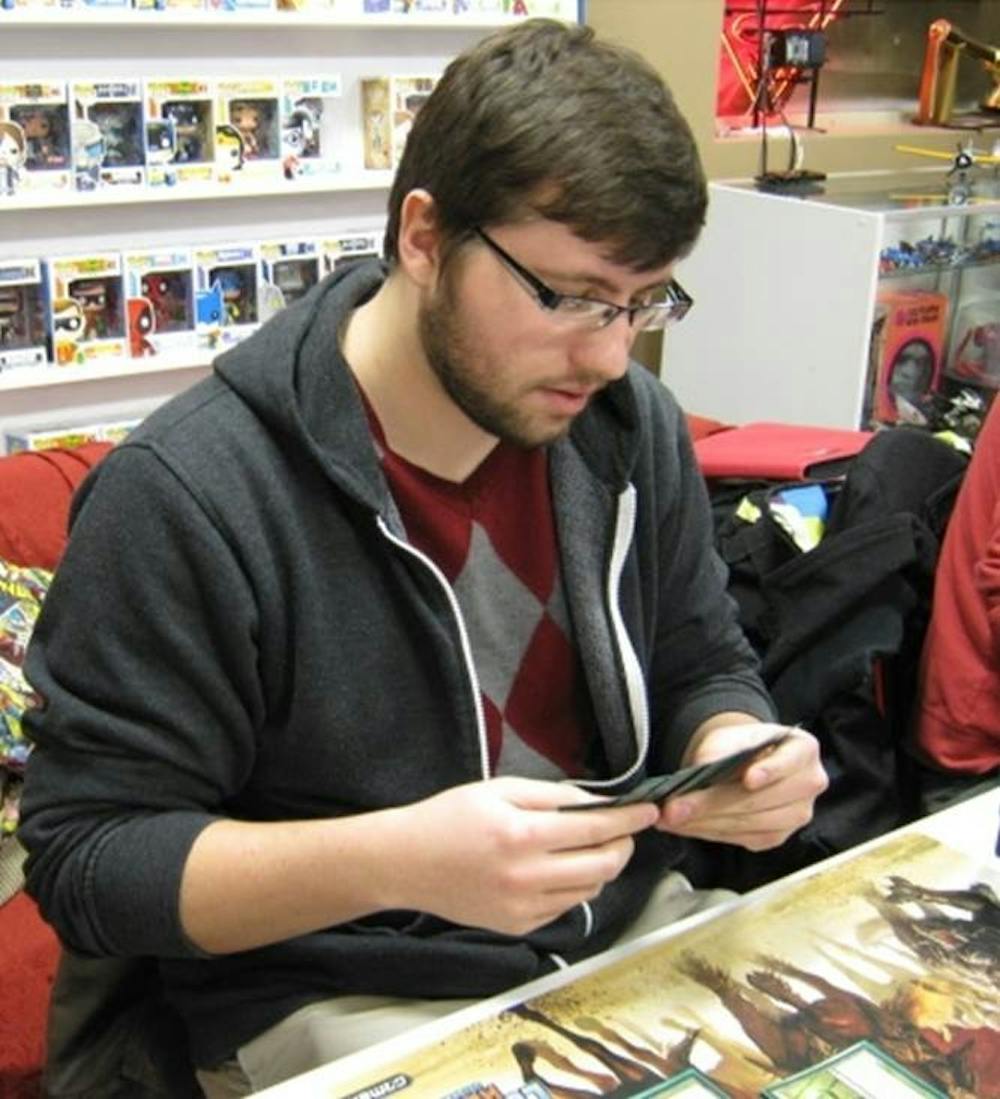No formal invitation, long beard or wand are needed to be a wizard. One deck of cards is all it takes.
On a cold Monday evening, 14 people sat at four tables in Alter Ego Comics, preparing for a game of “Magic: The Gathering.”
Riley Spelman, a junior applied cultural anthropology major, was one of the players who traveled through subzero temperatures to play.
Sporting khakis and an argyle sweater layered with a zip-up hoodie, he made small talk with his opponent as the Cold War Kids played in the background.
“I’m here every Monday,” Spelman said. “Just to hang out, get out of the house and have fun.”
“Magic” is the world’s first trading card game, according to Hasbro, with 12 million players globally by 2011.
A game typically consists of two dueling players. They control what are called Planeswalkers, a type of wizard. The Planeswalkers possess a variety of weapons, spells and creatures that are represented by cards, which they use in battle. Periodically, new sets of cards are released with new characters and weapons. The newest deck, “Born of the Gods,” will come out Friday. There will be 165 cards in the deck, according to wizards.com.
Each player has a minimum of 60 cards they must use to defeat their opponents. The players start with 20 life points each and battle until a player has no points left.
The camaraderie is as important as the game itself.
“Inside and outside the game, there’s just this huge community of friends,” Spelman said. “All of my best friends I’ve met through ‘Magic.’”
“Magic” falls into what he calls the classic nerd culture, not the popular nerd culture.
“[Popular nerds] are the people who wear movie theater glasses with the eyes poked out and the ‘I heart nerds’ T-shirt in 8-bit,” Spelman said. “They think they are [nerds].”
His peers got him hooked on the game six years ago. Since then, he developed a strong affinity for the game, and he said it’s been an important part of his identity.
Spelman plays “Magic” every Monday at Alter Ego Comics and every Friday at the Wizards Keep. He also travels to tournaments in other cities one weekend each month and is a level 1 judge, which means that he is certified to judge local tournaments.
“But I don’t go up to people and say, ‘I’m Riley [and] I play ‘Magic,’ ” he said. “I’m just a normal guy. But instead of Facebook or watching TV, I’m doing this.”
For him, the game is a personal challenge because of the complexity involved, much like a Rubik’s Cube. Players have to apply problem-solving skills to achieve their goals, which can be tough because the possibilities are infinite in terms of what players can do within the game, he said.
And once the game picks up steam, the competition can get tense.
Rivalries are even formed, much in the same way as in sports.
Spelman has gained a few of his own rivalries. Michael McCorkle, a junior general studies major, said Spelman is a competitive player.
Despite the rivalries, Spelman said he and the other local “Magic” players aren’t as powerful players as the professionals.
“Any of these players could be the best in the store, but they would get stomped by the professionals,” he said. “It’s like the Ball State football team. They could be the best team in college, but they would still get stomped by the [Indianapolis] Colts.”
Even though Spelman hates to lose, the wins and losses are inconsequential in the grand scheme of things. As long as the camaraderie continues and the cards are on the table, he said he will always come back for more.





